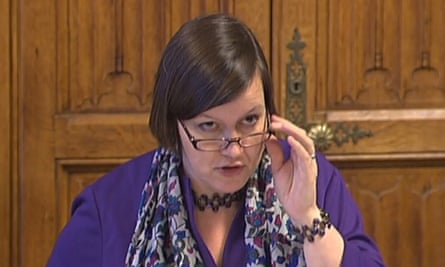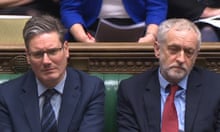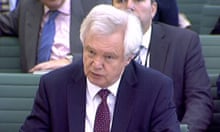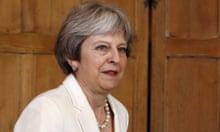The cost of the Brexit divorce bill for the UK could be billions higher than the £35bn-£39bn figure put forward by Theresa May, a report by Whitehall’s spending watchdog suggested.
The National Audit Office (NAO) has warned that the UK could pay an extra £3bn more in budget contributions as well as an additional £2.9bn to the European Development Fund.
Auditors have concluded that the Treasury’s estimate includes £7.2bn of receipts which will go directly to the private sector and not to the government’s accounts.
The findings will anger Eurosceptic Tory MPs who have previously questioned whether the government should pay the lower estimate of £35bn.
Philip Hammond, the chancellor, will be questioned about the NAO’s conclusions next Wednesday when he appears before the Treasury committee.
Responding to the report, Meg Hillier, the Labour chair of the public accounts committee, said there could well be an increase in the overall costs. “Whereas the promises made by some Brexiters of the bounty that our public services would receive post-Brexit are likely to be downgraded, I fear the cost of the UK leaving the EU could increase further.”May told parliament in December that the bill would be between £35bn and £39bn, a fee jointly agreed in a meeting between the Treasury and the EU’s chief Brexit negotiator, Michel Barnier.
Auditors found that the total amount that the UK would contribute to the EU annual budgets in 2019 and 2020 would be calculated on the basis of the UK’s economic outlook, which would also partly determine Britain’s share of outstanding commitments and liabilities after 2020.

Britain’s exit settlement could not be defined until there was more certainty in areas such as the economy’s performance in 2019 and 2020, auditors said.
Costs still to be worked out include those relating to pension liabilities, the amount British organisations will receive in EU funding after withdrawal and exchange rate fluctuations because the divorce bill will be paid in euros, according to the study.
“Relatively small changes to some assumptions about future events could push the cost outside of HM Treasury’s £35bn to £39bn range,” the report says.
Due to EU financial rules, the UK could have to pay up to £3bn more in budget contributions than Treasury estimates after formal withdrawal in March 2019. The UK might have to pay towards other costs, which are not in the government estimates, such as potential liabilities that could depend on future events.
The UK will also pay £2.9bn to the European Development Fund for overseas aid, which is not featured in the exit settlement estimate because the fund was not established under EU treaties.
Britain’s contribution to the EU pension scheme might last until 2064 unless the government decides to pay off its commitments earlier in a lump sum, which would present “risks and opportunities to the total value the UK may be liable to pay”.
The NAO states: “The terms of the settlement, which mark 31 December 2020 as a key date for determining the UK’s share of liabilities, mean the EU commission could skew future decisions and impact the total value the UK will have to pay back.”
Britain is seeking a transition period between officially exiting the EU in March 2019 and the end of 2020.
The government is dependent on information it receives from the EU to calculate the final settlement, but can appoint auditors to review such figures, according to the NAO. The government should consider “how it will update parliament with revised estimates as new information becomes available”, it said.
Sir Amyas Morse, the head of the NAO, said the £35bn-£39bn estimate was “reasonable” but could have been wider to reflect the many “moving parts”. He added: “As the vote on the draft withdrawal agreement approaches, we expect that government will provide a substantial amount of material for parliament to consider.”
Nicky Morgan, the chair of the Treasury select committee, said the costs would be examined further when Hammond and Morse gave evidence on Wednesday and Tuesday respectively.
She said: “[The NAO] has judged that the government’s estimate of the UK’s withdrawal payment to the EU is ‘reasonable’, but it appears to be shrouded in uncertainty.
“As the report states, the Treasury didn’t incorporate some of the main uncertainties – of which it was aware – in its figure. For example, the settlement estimate doesn’t include the UK’s commitments to the European Development Fund, which the Treasury expects will cost £2.9bn after the UK leaves the EU.”









